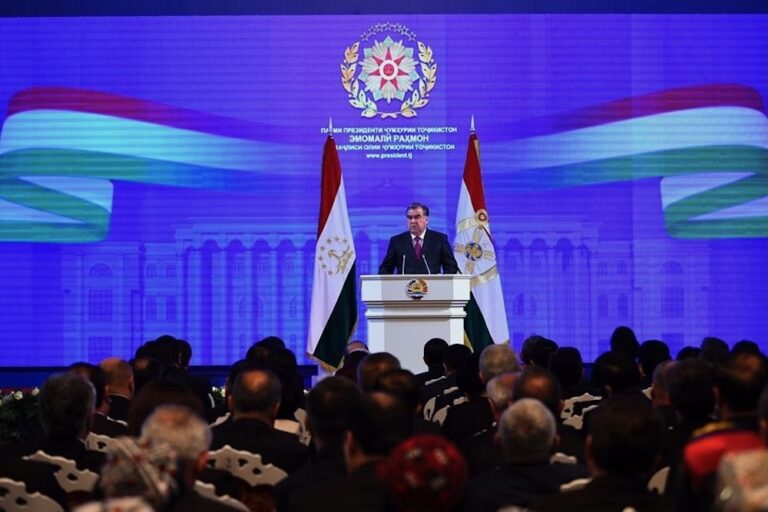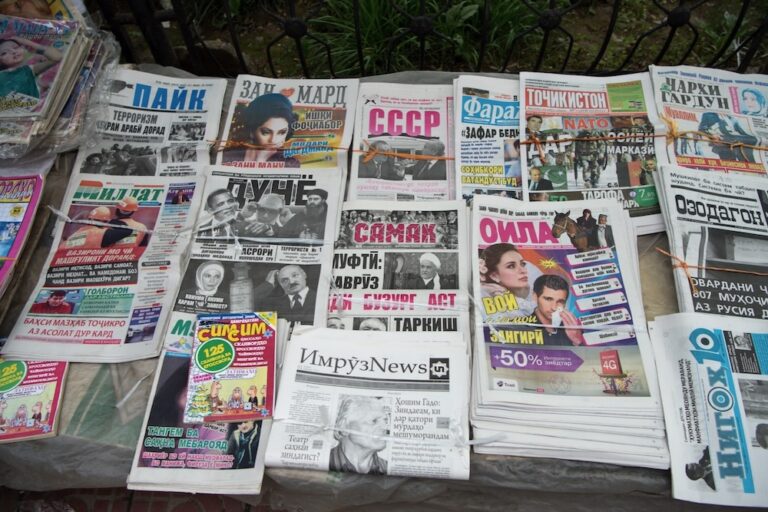(CPJ/IFEX) – The following is a 12 July 2001 CPJ press release: RUSSIAN AUTHORITIES FREE TAJIK JOURNALIST New York, July 12, 2001—Dododjon Atovullo, the Tajik journalist and opposition activist who was detained in Moscow last week while Russian authorities considered extraditing him to Tajikistan, was released today and has returned to Germany, where he is […]
(CPJ/IFEX) – The following is a 12 July 2001 CPJ press release:
RUSSIAN AUTHORITIES FREE TAJIK JOURNALIST
New York, July 12, 2001—Dododjon Atovullo, the Tajik journalist and opposition activist who was detained in Moscow last week while Russian authorities considered extraditing him to Tajikistan, was released today and has returned to Germany, where he is currently living in exile with his family.
Russian authorities apprehended Atovullo at the Sheremetevo airport outside Moscow on the evening of Thursday, July 6, while he was en route from Germany to Uzbekistan, local and international press reported. The arrest came in response to a request from Tajik officials.
Right decision
“The Russian government has made the right decision,” said CPJ executive director Ann Cooper. “While we regret that Dododjon Atovullo has been forced into exile because of his professional work, we are delighted that he will not be subjected to the legal lynching that awaited him in Tajikistan.”
In April, Tajik officials charged the journalist with insulting President Imomali Rakhmonov; supporting the violent removal of the constitutional order; and inciting ethnic, racial, and religious hatred. If Russia had granted the extradition request, Atovullo would have faced prosecution under Tajikistan’s harsh criminal libel and defamation laws. He would also have risked violence in a country where local law enforcement agencies are responsible for frequent harassment, beatings, and threats against journalists, according to CPJ research.
According to Atovullo’s lawyer, Andrei Rakhmilovich, the charges against Atovullo resulted from articles about Tajik government corruption that he published in his own newspaper and in the Russian media. “I was feeling discouraged because I had not been allowed to meet with my lawyer or anyone else for the last four days,” Atovullo told CPJ yesterday in a telephone interview from his home in Hamburg. “I thought that this is it, it’s over for me.”
A Russian prosecutor told Atovullo that President Putin had personally ordered his release. But the prosecutor urged Atovullo to leave the country at once because the Russian government could not provide him with protection.
Atovullo, 46, is the publisher of the influential Tajik opposition newspaper Charogi Ruz as well as a prominent opposition activist. Tajik authorities banned Charogi Ruz in 1992, and Atovullo moved the paper to Moscow a year later. The paper, which is distributed throughout Central Asia, has been a consistently vocal critic of Tajikistan’s notoriously corrupt and autocratic ruling elite.
Atovullo’s release marks the end of a drawn out game of cat and mouse with the Tajik government. Concerned about his personal safety, Atovullo fled Moscow for several weeks in November 2000. In May, he moved his family from Moscow to Hamburg.
Release a victory for post-Soviet journalists
Reflecting on his release, Atovullo told CPJ: “All of the media and international pressure led to my release. This is a big victory for journalists in the entire post-Soviet region.”
Asked about his future plans, Atovullo said: “I plan to try to move my newspaper and its staff from Moscow to a safer location in Western Europe. There’s no future for me in Moscow.”
For more information about press conditions in Russia and Tajikistan, visit www.cpj.org. CPJ is a New York-based, independent, nonprofit organization that works to safeguard press freedom worldwide.


